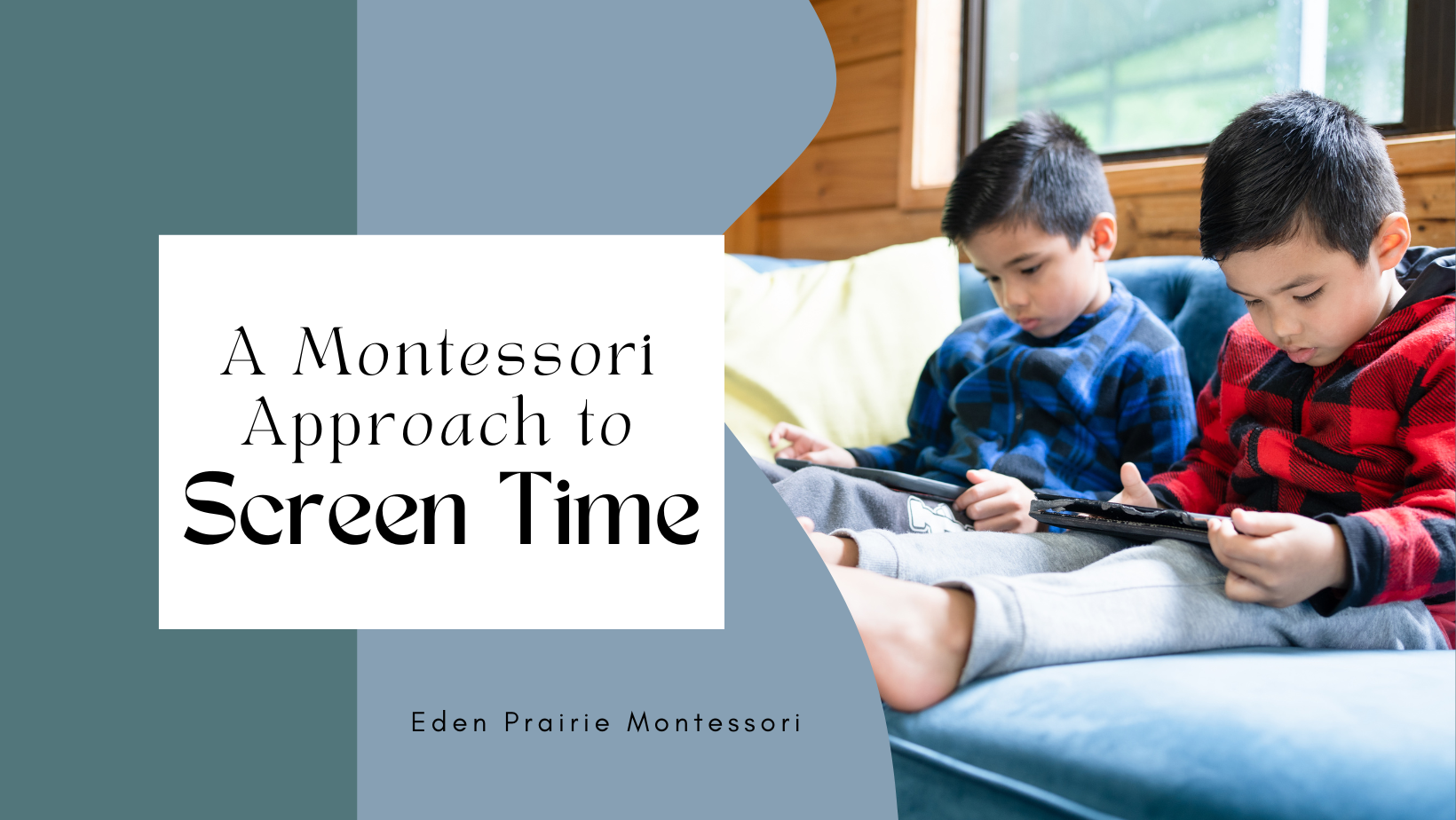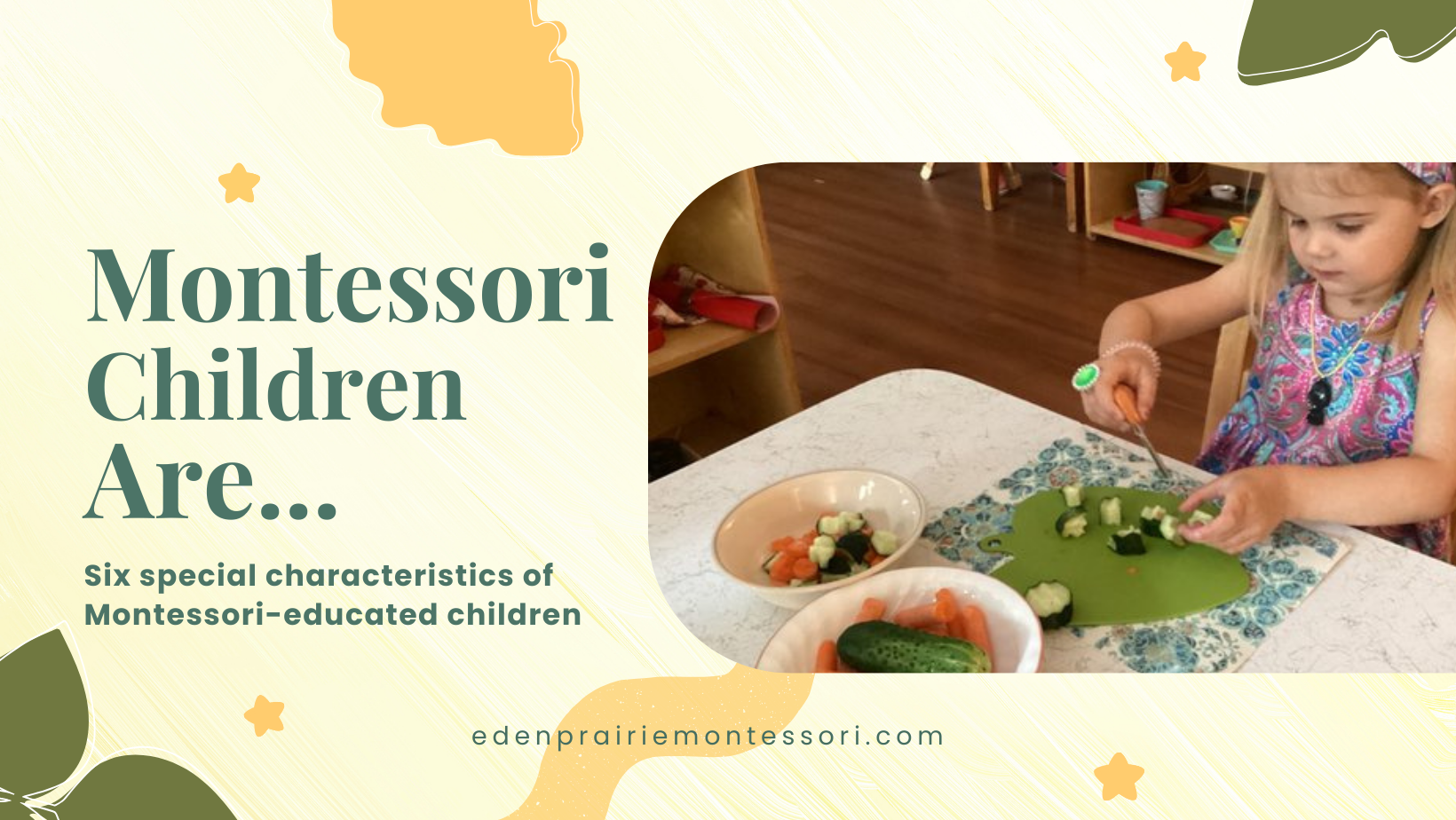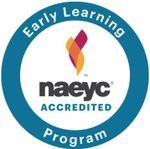Eden Prairie Montessori Learning Blogs
How to Encourage your Child’s Independence The Montessori Way


Children’s independence is highly prized in the Montessori approach; it is viewed both a process and an end goal. Maria Montessori encouraged adults to “never help a child with a task at which he feels he can succeed.” She observed that often adults stifle children’s emerging independence with traditional teaching methods.
In Montessori settings adults take a step back and allow children to do many things for themselves. An important aspect of the Montessori approach is the provision of child sized tools; by providing child sized watering cans, or knives, for example, children are encouraged to use tools properly and for their intended purposes and are physically able to do so as the apparatus is sized to be used correctly.

If you would like to encourage your child’s independence at home as we do in the Montessori school setting, here are some good launching points:
1. Acknowledge The Need For Independence
Too often as parents we are in a hurry to get out of the door. It’s easy to dismiss the child who screeches about wanting to put on their own shoes as being “difficult.” This sense of frustration by the child is usually frustration about the thwarting of their attempts at independence. Taking a step back, and acknowledging that this is what is going on is a great place to start thinking about how you can set up your home, and your routines, to allow for this growing sense of independence.
It is also worth noting here that so-called ‘tantrums’ are often a toddler or child’s manner of expressing frustration at boundaries, and lack of independence. This is not to say do away with your boundaries; not at all, just that acknowledging feelings for what they are is important, and again a great jumping off point for considering how to arrange your lifestyle to allow independence to flourish.

2. Create a “Yes” Space
Often we limit what our children are allowed to do based on safety concerns, or worries about mess and tidying up . For example, you may tell your 3 year old “no, they cant play with their toy cars in the lounge as it will make a mess” , “no they cant throw the ball inside the house as they may break something” , and “ no they can’t jump around the house like a ninja because they may break themselves.” Before you know it you’ve spent the morning telling them ‘no’, if anything will frustrate a growing sense of independence it’s the word ‘no’.
To combat this it may be a good idea to set up a ‘yes’ space in the home. This might be a playroom, the child’s bedroom, or a play area. The idea is to set the space up to be safe enough that you, as the parent or caregiver, do not need to constantly say no. Montessori classrooms are largely yes spaces. A yes space is somewhere you can trust your child to play independently and stay safe.
3. Encourage Independence Verbally
What we say and how we say it can make a huge difference to our children. As we already discussed, most children want to be independent and become frustrated when they are not allowed to be. When we verbally permit, encourage and celebrate our children’s attempts at being independent we validate them , and when children feel validated in their attempts at independence, they are likely to seek to do it more. Great phrases to use are; “Have a try” “You can do it” “I trust you”
4. Rethink Meal Times

Often meal times with little ones can be a source of stress, but a more laid back approach may pay dividends in terms of your child’s independence. Even young babies (so long as they are over 6 months) can feed themselves at the table and using a baby led weaning approach is a great way to promote that early independence. For older children, serving themselves portions and pouring water from a jug enhances their balance and hand eye co-ordination as well as dividing responsibility at mealtimes. As a bonus, children tend to be more willing to eat a wide variety of food when they select it themselves.
5. Support Their Style
Children are often keen to select their own clothing and dress themselves. Although their fashion choices can be questionable at times, allowing them to make attempts at dressing will pay off in the long run. If your child’s choices are likely to be unsuitable for the days activities or the weather you could decide on an outfit together perhaps the night before and lay it out for them to put on themselves in the morning.
Younger toddlers and babies can be encouraged to lift their arms ton put on a shirt, or raise their feet to put on shoes and socks. Use your best judgement as to when your child may be able to attempt dressing alone.

6. Encourage Assitance Around The House
Involving your children in running the household from a young age is great for promoting independence and also demonstrates their role in the family and enhances their sense of belonging. Plus, help with chores is always welcome!
Little babies can be encouraged to help put their toys away in a box when they have finished playing, or wipe down the table or highchair tray when they are done eating. Toddlers generally love to help around the home and can use a small dustpan and brush or a handheld vacuum to clear up. Matching socks and sorting laundry are also valuable contributions to family life; and this is key in making your child feel involved in the running of the home and family life you validate their independent attempts at helping.

We hope that some of these ideas will help as you consider how to approach encouraging your child’s independence!
Come see if a Montessori is right for your family! Call us today to schedule a tour at 952-944-8466.
Don’t miss out on the benefits of Montessori for your child. Your child will gain unique learning experiences and big developmental strides.
The post How to Encourage your Child’s Independence The Montessori Way appeared first on Eden Prairie Montessori.
Contact us today to get your free informational e-packet or book a tour!
Contact Information:
7455 Market Place Dr
Eden Prairie, MN 55344-3635
Phone: (952) 944-8466
Email: north@epm.education
Mon to Fri: 7:00am to 5:30pm
Sat & Sun: Closed
All Rights Reserved | Eden Prairie Montessori Learning







